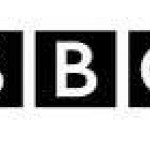- Settore: Broadcasting & receiving
- Number of terms: 5074
- Number of blossaries: 1
- Company Profile:
The largest broadcasting organisation in the world.
CO2 is made up of the elements carbon and oxygen. It exists quite naturally in our atmosphere, as part of the carbon cycle. Everyday processes in the plant and animal world both add CO2 to the atmosphere and take it out. However, because it is a greenhouse gas - meaning it affects the temperature of the earth - the exact level of CO2 is important. Burning fossil fuels releases CO2 into the atmosphere, hence the anxiety that extensive use of these fuels is causing climate change.
Industry:Natural environment
The process whereby technological advances are shared between different countries. Developed countries could, for example, share up-to-date renewable energy technologies with developing countries, in an effort to lower global greenhouse gas emissions.
Industry:Natural environment
Six greenhouse gases are limited by the Kyoto Protocol and each has a different global warming potential. The overall warming effect of this cocktail of gases is often expressed in terms of carbon dioxide equivalent - the amount of CO2 that would cause the same amount of warming.
Industry:Natural environment
A textile bank is a place to take old clothes for recycling. Compared with other materials such as glass, there is, as yet, very little textile recycling in the UK.
Industry:Natural environment
A person's carbon footprint (or that of a particular household, business or entire community) refers to the CO2 for which they are responsible - whether directly, via their home energy use, their transport use, or indirectly via the embodied energy in the products and services they buy and use. You can work out your carbon footprint using calculators such as the Government's Act On CO2 Calculator.
Industry:Natural environment
A thermostat maintains the temperature of a system at or near a stipulated level using sensors that tell it when to turn off heating devices. In most household central heating systems, a wall-mounted thermostat is used to set a maximum temperature for the house, while thermostatic radiator valves can be used to set a desired level for individual radiators.
Industry:Natural environment
Thermostatic radiator valves (TRVs) automatically open and close as necessary to control the flow of hot water into a radiator and so achieve the pre-set air temperature for a particular room, rather than for the whole house. The level is set by turning a dial on the radiator.
Industry:Natural environment
A unit of measure. The amount of carbon emitted by a country per unit of Gross Domestic Product.
Industry:Natural environment
A toxin is a chemical compound from one organism that is harmful to another organism.
Industry:Natural environment
A term used to refer to the problem whereby industry relocates to countries where emission regimes are weaker, or non-existent.
Industry:Natural environment
